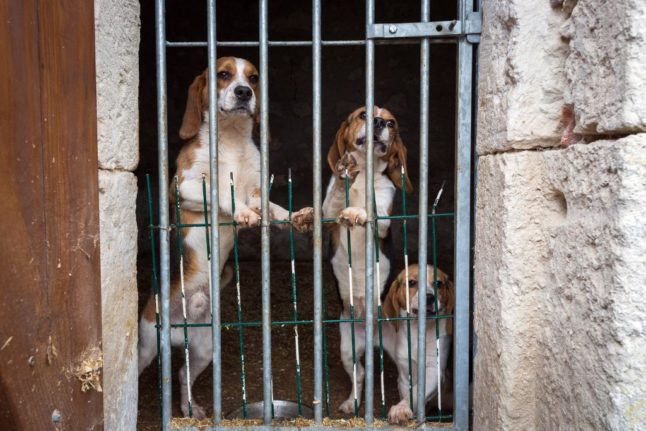Spain’s new animal welfare law was initially controversial as it left out hunting dogs from the reinforced rights the legislation would give a number of species, but it’s now making headlines at home and abroad for more bizarre reasons.
There are a number of claims being made that the bill spearheaded by far-left Social Rights Minister Ione Belarra decriminalises bestiality.
The rumour has been started by some right-wing media sources such as online newspaper Libertad Digital, which ran with the headline “Belarra decriminalises bestiality if the animal isn’t injured”, and as could be expected the story spread like wildfire on social media.
Spain’s far-right Vox Party then stoked the fire. Their spokesperson Iván Espinosa de los Monteros refused to deny the claim and mockingly told journalists “they should ask Podemos (Spain’s junior coalition governing partner) if they have thought about how they are going to obtain the animals’ consent, the chickens, with whom they want to have sexual relations”.
And the rumour obviously made its way overseas, as Poland’s Justice Minister Zbigniew Ziobro went as far as tweeting: “Leftism is the plague of the 21st century. The Spanish allow children to change their sex at will (in reference to Spain’s divisive Trans Law). Now they are going to legalise bestiality”.
So what is it about the animal rights bill – approved by the Spanish Parliament but not yet in force – that has given right-wing commentators the impression that it legalises sex with animals?
The contentious point in question relates to a modification of Spain’s Criminal Code (Art. 337) and the sentences for mistreatment and abuse of animals.
It currently punishes “sexual exploitation” of animals and the wording has been changed to penalising “acts of a sexual nature…that cause an animal injury which requires treatment”.
So the fact that the proposed new text doesn’t appear to specifically state that all sexual acts on animals should be considered a crime but rather only the ones that cause physical harm to the animals has been picked apart as apparent proof that bestiality will become legal in Spain.
It’s worth pointing out that neither the old nor the new legislation used the word “bestiality”, zoofilia in Spanish.
According to left-wing newspaper El Diario, which has described the claims as “fake news”, the change doesn’t mean bestiality will be decriminalised in Spain because it was never criminalised in the first place.
Sources from Spain’s Social Rights Ministry have defended the new wording, as according to them the only existing legislation brought in in 2015 penalised just the “sexual exploitation” of animals, which could be interpreted as being sexual exploitation for financial gain only.
“All sexual acts with animals will be punishable. In the event that they produce injuries, they will be considered crimes; in the rest – less serious offences – they will be classified as abuse without visible signs of injury (maltrato de obra)”, representatives of Ione Belarra’s ministry told El Diario.
Spanish investigative news website Newtral has published a thorough report on the matter as well, interviewing a number of legal and animal rights experts.
They overall concluded that there is no outright evidence that bestiality will be decriminalised in Spain, but there is some disagreement over whether the modified text could hinder some sentences for sexual acts on animals.
READ ALSO: Seven key points from Spain’s new animal welfare law
For animal rights legal group INTERcids, the updated Criminal Code is “a step back” which could mean that some cases of animal abuse result in a fine for the offender rather than prison time, as the updated legislation can give judges the freedom to choose between either rather than both, even for serious abuse.
So it appears that the devil is in the detail (or lack thereof), and when it comes to Spanish legalese a lot can be left up to interpretation, even for judges and lawmakers.
We’ve seen it recently with the scandal involving Spain’s ‘only yes means yes’ sexual consent law, meant to tighten legislation but actually resulting in hundreds of rapists and sexual offenders being released from prison or having their sentences reduced.
The consensus among lawyers and animal rights activists is that the claim that bestiality will soon be legalised in Spain is fake.
But perhaps the focus should instead be on whether the Spanish government is about to pass another ill-thought-out, ambiguous law which will, to some extent, have the direct opposite effect of what it was intended to do.
READ ALSO: Spanish legalese is so wordy most Spaniards don’t understand it, study reveals



 Please whitelist us to continue reading.
Please whitelist us to continue reading.
Member comments